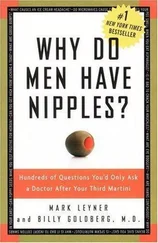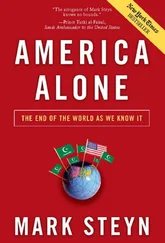The sovereign extends its arms about the society as a whole; it covers its surface with a network of petty regulations—complicated, minute, and uniform—through which even the most original minds and the most vigorous souls know not how to make their way… it does not break wills; it softens them, bends them, and directs them; rarely does it force one to act, but it constantly opposes itself to one’s acting on one’s own… it does not tyrannize, it gets in the way: it curtails, it enervates, it extinguishes, it stupefies, and finally reduces each nation to being nothing more than a herd of timid and industrious animals, of which the government is the shepherd.
Welcome to the twenty-first century.
The all-pervasive state “does not tyrannize, it gets in the way.” It “enervates,” but nicely, gradually, so that after a while you don’t even notice… But once in a while even the mellowest hippie emerges from the stupor.
In 1969, George Harrison of the Beatles, in the course of a wide-ranging ramble, briefly detoured out of the Hare Krishna chants into some remarks about the Monopolies Commission (the British equivalent of the U.S. government’s Antitrust Division):
You know, this is the thing I don’t like. It’s the Monopolies Commission. Now if anybody, you know, Kodak, or somebody is cleaning up the market with film, the Monopolies Commission, the government send them in there, and say you know, you’re not allowed to monopolize. Yet, when the government’s monopolizing, who’s gonna send in, you know, this Commission to sort that one out? 1
Good question. There was an old joke in Britain: “Why is there only one Monopolies Commission?” In fact, it’s an incisive observation on the nature of government. We wouldn’t like it if there were only one automobile company or only one breakfast cereal, but by definition there can be only one government—which is why, “when the government’s monopolizing,” it should do so only in very limited areas. That’s particularly true for national governments when the nation they govern has more than 300 million people dispersed over a continent and halfway across the Pacific.
These days America’s government is doing a lot of monopolizing. If it were a private company such as Kodak (to use George Harrison’s quaint example), it would be attracting antitrust suits. By 2008, the government-sponsored Fannie Mae and Freddie Mac had a piece of over half the mortgages issued in the United States. 2As a result, a government-mandated form of pseudo-ownership came close to collapsing the world economy. Which the politicians then, naturally, blamed on capitalist greed. Fresh from their success in undermining the property market, the government went on to seek a monopoly in college loans, plus control of the automobile industry and health care.
In his dissenting opinion on United States vs. Columbia Steel Co. (1948), Justice William Douglas wrote:
We have here the problem of bigness…. The Curse Of Bigness [Justice Louis Brandeis’ essay] shows how size can become a menace—both industrial and social. It can be an industrial menace because it creates gross inequalities against existing or putative competitors. It can be a social menace—because of its control of prices….
Now who does that sound like? No, not Kodak. The fact that George Harrison’s selection of an all-powerful monopoly rings so sweetly nostalgic just a few decades later is testament to the self-correcting mechanisms of a functioning market. Kodak, which actually invented some of the first digital camera technology in 1975, failed to foresee how fast things were changing, and eventually wound up laying off 60 percent of its workforce. 3Had the statists been in charge of that sector as they now are of so many others, we’d still be snapping with Kodak Instamatics, and it would take you two weeks to get your holiday pics and cost you $800, because the government had intervened to protect the jobs of Instastatistmatic film developers in the unionized Kodacrony lab.
These days, the Number One example of the Curse of Bigness is government. It doesn’t just create “gross inequalities” against existing or putative competitors, it passes laws and drives them out, as it’s done to everything from genuinely private health-care arrangements to non-state-licensed kids’ lemonade stands. In Justice Marshall’s words, it’s a “social menace” because of its “control of prices.”
How does it control them? Michael Fleischer, the owner of a small company in New Jersey, explained to readers of the Wall Street Journal that in order to put $44,000 in his employee’s pocket and give her an additional $12,000 worth of benefits he has to pay $74,000: Big Government imposes a 30 percent surcharge on the cost of providing employment to Sally. 4It “controls the price” of hiring Sally, and it massively distorts it. Which is one reason the unemployment rate is stuck where it is.
How else does it control prices? In 2009, something called the State Council of Higher Education in Virginia decided that studios offering yoga teacher instruction had to be “certified.” 5So what else is new? Everything’s certified these days. Why not yoga? It’s just a $2,500 certification fee, plus undreaming america annual charges of at least $500, plus state audits, plus a ton of paperwork.
But don’t worry, with a bit of practice, you can multitask and fill in all the forms in the lotus position. In the Fifties, one in twenty members of the workforce needed government permission in order to do his job. 6Today, it’s one in three. So Big Government “controls the price” of your yoga lesson.
Look on it as a twofer: all the purifying benefits of yoga, now with the dead weights of Big Government.
Government today has a monopoly of monopoly. If you were to update the board game of the same name to reflect reality, every square you land on would require you to pay a fee to government before you can do anything—occupational license, commercial-use permit, processing fee for a license to permit you to collect sales tax. You’d go straight to jail without passing “Go” for putting up a yoga studio on Atlantic Avenue and being delinquent in your meditation-accreditation application, but the government would let you plea-bargain it down to a $3,000 fine. If you land on “Go,” you’d have to pass a “Go” impact-study inspection before being allowed to go.
There’s your Curse of Bigness, and the only one beyond the jurisdiction of the Antitrust Division.
Alas, the monopolizers don’t see it as a curse. Before he became Treasury Secretary, Timothy Geithner (by his own admission) failed to pay the United States Treasury the taxes he owed because he couldn’t follow the yes/no prompts of elementary TurboTax software. Undaunted, by early 2009, he and President Obama, two men with no business management experience whatsoever, who have never created a nickel of wealth between them, were “managing” more money than any individuals anywhere on the planet have ever done. Fans of Big Government take it for granted that Obama, Geithner, and a handful of other guys can “run” the financial sector, and the auto industry, and the insurance industry, and the property market, and health care, and even the very climate of the planet. The Barackracy assume that a few clever people in Washington can direct trillions of dollars more productively than the companies and individuals from whom they confiscated it. There are many people who can run businesses worth a million dollars. The ability to run a billion-dollar corporation is the province of very few individuals. The skill-set required to run a multitrillion-dollar enterprise is unknown to human history.
In Justice Marshall’s words:
Industrial power should be decentralized. It should be scattered into many hands so that the fortunes of the people will not be dependent on the whim or caprice, the political prejudices, the emotional stability of a few self-appointed men. The fact that they are not vicious men but respectable and social minded is irrelevant.
Читать дальше











